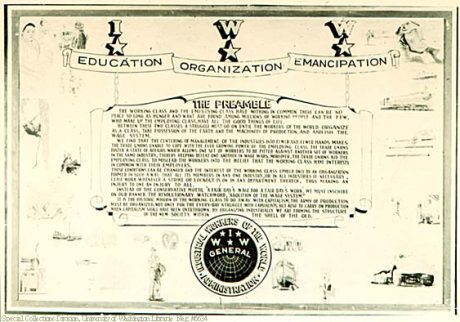
MENTAL HEALTH ISSUES INCLUDING ANXIETY AND DEPRESSION INCREASED SIGNIFICANTLY DURING THE COVID-19 LOCKDOWNS, WITH THE UK CHARITY THE HEALTH FOUNDATION EARLIER THIS YEAR REPORTING THAT DEPRESSION RATES HAD DOUBLED SINCE THE PANDEMIC BEGAN. THOSE IN PRECARIOUS ECONOMIC POSITIONS AND GROUPS INCLUDING THE YOUNG, DISABLED AND WOMEN WERE DISPROPORTIONATELY AFFECTED.
Many of these disadvantaged groups are supported by employee-owned Seetec Group, which operates across the UK and Ireland and helps individuals and communities to fulfil their potential through employment, skills, and rehabilitation services.
During the pandemic employees faced new – and more isolated – ways of working which, presented the group with the challenge of how to maintain the wellbeing of its colleagues, so they could continue to support service users.
It has always been an organisation with strong values, but our employee ownership structure made sure that employee voice was at the centre of our response to the challenges that our service users and our colleagues faced.
The pandemic had an impact on the personal lives of many colleagues, from family members being unwell to not being able to visit and support extended family, members of their households being furloughed creating financial difficulties, to the challenges of home schooling. However, Seetec has benefited from having an established Health and Wellbeing Strategy, and its employee voice has helped to contribute to and implement this.
We have a dedicated employee ownership network of colleagues. They formed a Health and Wellbeing working group to respond to the needs of frontline colleagues, which brought real benefits to our people.
Support included loaning laptops to families to reduce digital exclusion, providing Covid grants for employees with an immediate financial crisis and setting up a safe online space to provide discreet information to anyone facing domestic abuse, mental health or drug and alcohol issues.
This has built upon other successful initiatives such as activity groups, ranging from online yoga and zumba classes to a Strava virtual walking group and mindfulness sessions, plus a vital home school support group helping families with remote learning.
These came from the voice of our people. Our employee ownership structure means that rather than going through a complex approval process, employees had the confidence and authority to put support in place quickly.
When the Covid-19 pandemic struck, the first priority was how it could continue to deliver services to those most in need. The expertise and influence of the employee voice empowered the organisation to act quickly and deliver support that works, reaching the most vulnerable and helping to bring communities together.
Employee ownership really sits with our values and beliefs. We work with people in the community, helping them to take ownership of their futures and their lives.
There’s a perfect synergy between that and giving ownership to our colleagues and giving them a say in the future of the organisation.
The Covid-19 pandemic highlighted how the diversity and wisdom of our people improved decision-making in the business and improved outcomes for not just ourselves but our service users.
Despite the pandemic, annual employee engagement survey highlighted a 12% improvement in health and wellbeing scores.
Response to the welfare needs of colleagues during the pandemic has just been highly commended in the ‘Best Health and Wellbeing Initiative – private sector’ category at this year’s CIPD People Management Awards.
Group HR Director Sasha Ashton says: “Our commitment to ensuring that employee owners have a stake and say in Seetec’s destiny means we work in the best interests of service users, while looking after our own people.
“During the pandemic, working together with employee owners has enabled us to deliver support where it is needed the most, leading to improved wellbeing and mental health for all.”
Preamble to the IWW Constitution
The Preamble is the founding document and statement of principles and visions for the IWW. It has not changed considerably since the union’s founding conference in Chicago, 1905. It is a powerful statement of intent which pulls no punches and refuses the compromises and ‘partnership’ attitudes of most contemporary unions. In the context of intensifying employer and government crackdowns on our hard-won pay and conditions, the Preamble resonates as strongly in the contemporary period as it did when it was first written.

The working class and the employing class have nothing in common. There can be no peace so long as hunger and want are found among millions of the working people and the few, who make up the employing class, have all the good things of life.
Between these two classes a struggle must go on until the workers of the world organise as a class, take possession of the means of production, abolish the wage system, and live in harmony with the Earth.
We find that the centering of the management of industries into fewer and fewer hands makes the trade unions unable to cope with the ever growing power of the employing class. The trade unions foster a state of affairs which allows one set of workers to be pitted against another set of workers in the same industry, thereby helping defeat one another in wage wars. Moreover, the trade unions aid the employing class to mislead the workers into the belief that the working class have interests in common with their employers.
These conditions can be changed and the interest of the working class upheld only by an organisation formed in such a way that all its members in any one industry, or in all industries if necessary, cease work whenever a strike or lockout is on in any department thereof, thus making an injury to one an injury to all.
Instead of the conservative motto, “A fair day’s wage for a fair day’s work,” we must inscribe on our banner the revolutionary watchword, “Abolition of the wage system.”
It is the historic mission of the working class to do away with capitalism. The army of production must be organised, not only for everyday struggle with capitalists, but also to carry on production when capitalism shall have been overthrown. By organising industrially we are forming the structure of the new society within the shell of the old.
No comments:
Post a Comment